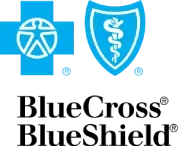
Drug Detox
Scroll
The decision to go through drug detox is a courageous step forward. To navigate through it safely and successfully, it is essential to understand what the process entails. This guide is to provide you with a clear snapshot of what lies ahead.
What Is Drug Detox?
Drug detoxification, often known as drug detox, is generally thought to be a medical procedure that treats physical drug dependence. Additionally, it is linked to the treatment of acute drug overdose (toxidrome) and the management of withdrawal symptoms. The first interpretation, which deals with substance abuse and its management, might be deceptive, though.
This is because the body’s elimination of the medication does not always lessen or affect withdrawal symptoms. As the symptoms are mostly caused by the drug’s absence in the body, especially in the blood plasma, rather than by any leftover poisons or residues of the drug, the body’s process of getting rid of the drug might cause withdrawal.

What’s the Process of Detoxification?
Detoxification, in general, consists of three major parts:
- Assessment: Healthcare specialists examine the physical and psychological health of the patient in order to identify the degree of support.
- Stabilization: Patients receive both medical and psychological treatment in order to stabilize them and avoid any possible complications.
- Pre-Treatment: The patients are prepped to take part in a treatment program that tackles the causes of addiction.
Are There Different Types of Detox Programs?
Yes, there are various types of detox programs for different needs:
- Medical Detox: Ideal with serious withdrawal symptoms, 24/7 medical support and oversight, and usually medication to treat the symptoms.
- Inpatient Detox: Appropriate when co-occurring mental health disorders may be present or there is a history of relapse, and the patient receives full-time residential care and treatment in an organized environment.
- Outpatient Detox: Suitable for those who have a mild addiction and a supportive base to go home and have treatment during the scheduled visits.
- Social Detox: This treatment focuses on emotional support and peer-monitored situations and is not medical; it is appropriate in cases of moderate and lighter substance consumption.
- Holistic Detox Programs: It combine conventional treatment with some new ones, such as yoga and acupuncture, that enhance overall well-being.
- Rapid Detox: Not very supported by experts and highly problematic to health, it is a method that flushes the system of drugs fast when put under sedation.
All the programs address various needs and situations, and a clinical assessment may result in the best possible program to guarantee a safe, successful recovery.
Drug Detox Programs at The House of Life
- Alcohol Detox
- Adderall Detox
- Benzo Detox
- Cocaine Detox
- Crack Detox
- Fentanyl Detox
- Heroin Detox
- Ketamine Detox
- Marijuana Detox
- Meth Detox
- Opioid Detox
- Xanax Detox

What Are the Side Effects of Drug Detox?
There are numerous detox side effects as the body adapts to not using substances.
Mental Side Effects:
- Fatigue: This happens frequently as the body and brain get used to functioning without the drug.
- Depression and Anxiety: They become extreme because the brain is rebalancing its chemistry through detoxification in addiction.
- Suicidal Ideation: It can result in suicidal thoughts in extreme situations; that is why it is crucial to seek professional help in a detox center.
Physical Side Effects:
- The stomach cramps and constipation: The stomach-related problems are normal during detox programs.
- Headaches: Common since the body starts to readjust in the process of detox treatment.
- Sweating and Muscle Spasms: Body reactions that may be painful, but they usually improve after a few days.
How Long Does a Drug Detox Take?
Detox duration depends on various factors, such as the kind of drug, the duration of use, and the health of the person. In most cases, the process of detox may last a few days to a few weeks.
Drug Detox Timeline at The House of Life
We specify our drug detox timeline at the House of Life in such a way that it is aimed at a comfortable and successful detox:
- Week 0-1: The first stage of intake, evaluation, and stabilization.
- Days 4-7: Medical/psychological intensive support.
- Week 2: The continuation of treatment and the preparation of further treatment.
Why Choose a Professional Drug Detox Center?
A professional drug detox facility has crucial advantages that would ensure safe and successful recovery:
- Medical Supervision: Provides safety and comfort and has 24/7 care from the medical personnel capable of handling the withdrawal symptoms and any complications as they arise.
- Holistic Care: Provides a thorough treatment that involves medical care and treatment, psychological support, and therapy to cover all the facets of addiction.
- Caring Atmosphere: Builds a high-structure, drug-free atmosphere that supports recovery and uses peer and emotional support to assist people through their detox process.
The centers provide the long-lasting basis of successful recovery by providing individualized care and resources in a safe setting.
Is Home Drug Detox Safe?
Home drug detox is very risky and highly discouraged. In the absence of professional medical care, there is a huge risk of experiencing severe and life-threatening withdrawal symptoms. Emergencies are unpredictable, and in the absence of prompt attention, conditions may turn critical.
How to Encourage a Loved One to Go to Rehab?
Encouraging a loved one to attend rehab should be done thoroughly and considerately.
Here are a few steps to follow:
- Pick Your Time and Place: Pick a quiet and private place to have the conversation; make sure your loved one is not distraught and that they are sober.
- Show Care and Concern: It is important to use the word “I” to express that you are caring but do not want to judge by saying something like, “I am worried about how you are doing.”
- Research and Share Information: Give information about rehab facilities and programs, point out the advantages, and clear up any misunderstandings.
- Design an Intervention: An organized intervention involving close friends and family members under the direction of a professional can be used to voice shared concern and encouragement.
- Provide Clear Instruction and Assistance: Provide an overview of the next stages of getting into rehab and offer practical assistance, like making phone calls or organizing matters concerning hospital admissions.
What Happens After Detox?
Following detox, people are usually moved to an invasive treatment program, which may involve:
- Inpatient Rehab: Hospital-based programs where you are staying at the center 7 days a week, 24/7.
- Outpatient Rehab: Treatment when staying home.
- Therapy and Counseling: Continuous help to tackle the roots of the problems and avoid a relapse.
What Is the Cost of Drug Detox?
The price of the detox of a drug is different; it depends on the program type and duration of the stay. Detox services are covered by many different insurance plans, and in some facilities, there are financial assistance or payment plans.












